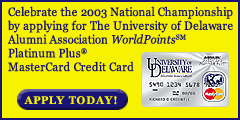


|

|
|
Muslim world mistrusts America, experts say
Keith said that throughout the world, the United States has met objections on many levels. “The reaction to our bombing [in Iraq] was extremely negative in the Islamic world,” he said. “We have met a storm of disapproval in the world.” Keith presented statistics and provided examples to show how attitudes toward the United States have deteriorated in other countries. “In various Muslim countries and in Europe, the news is not good,” he said. “Perceptions of the United States are negative throughout the world. “We had overall, in most of the 20th century, a reservoir of good will in the Arab world,” he said. “Alas, this reservoir is running dry.” Keith said it is important for Americans to better understand the Arab world. “Many Muslims perceive a permanent threat on Muslims from the non-Muslim world,” he said. “There are perceptions that the United States is anti-Islamä. The presumption is that the United States is an unreliable friend and a disloyal ally.” Keith said it is imperative for countries to broaden and deepen the dialogue amongst one another. Keith also stressed the need to change the stringent U.S. visa policy. “Our visa situation threatens exchange programs,” he said. Keith said U.S. visa policy prevents many students from participating in academic exchange programs. “A goal of every university should be to internationalize,” he said. “We are moving in the opposite direction.” Also speaking at the program was Zahir Jamal, chief of Arab regional programs for the United Nations and editor of the Arab Human Development report. He focused his discussion on the results of his reports and America’s lack of knowledge in the Arab world. In the past, Jamal said, the Arab world has conveyed an optimistic picture to the rest of the world. “What’s missing is the story of human poverty—in a region that is richer than it is developed,” he said. Jamal gave statistical information about the illiteracy rate, lack of education and high unemployment rates to support his statement. From his research, Jamal said he has determined that there are three cardinal deficits that exist in the Arab and Muslim world: “Freedom, women empowerment and knowledge.” “The most shocking finding can be looked at in the simple question of knowledge. What do we know about these people? What do they know about us?” Jamal said the Arab world once had the highest education and lowest infant mortality rates in the world. “Our investment in education there after 20 years, has stalled and reversed,” he said. Jamal said that changes in the Arab world will come from the younger generations. “Change is going to come from an angry, unfulfilled society that exists in the country. We have reached a point where what has gone before simply won’t work,” he said. The 2004 Global Agenda series is supported by the University of Delaware and the Wilmington World Affairs Council. Visit [http://www.udel.edu/global] for more information. Article by Tywanda Howie, AS’04 To learn how to subscribe to UDaily, click here. |

|